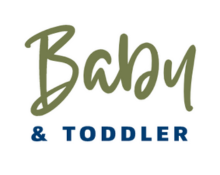
Breastfeeding a baby with a milk allergy can be challenging, but it is possible to continue breastfeeding with the right management. Here are some strategies to consider:
Eliminate dairy from your diet: If your baby has been diagnosed with a milk allergy, it is important to remove all sources of dairy from your diet. This includes milk, cheese, yogurt, butter, and other dairy products. Read food labels carefully as dairy can be hidden in various processed foods.
Consult with a healthcare provider or dietitian: It can be helpful to seek guidance from a healthcare provider or a registered dietitian who specializes in breastfeeding and allergies. They can provide you with specific dietary recommendations and ensure that you are getting all the necessary nutrients while avoiding dairy.
Monitor for hidden sources of dairy: Dairy ingredients can be present in unexpected places, such as baked goods, processed snacks, and sauces. Be vigilant about reading labels and ask about ingredients when eating out or consuming packaged foods.
Consider allergen cross-contamination: In some cases, even trace amounts of dairy can trigger an allergic reaction in a sensitive baby. Pay attention to potential cross-contamination issues, such as using shared cutting boards or utensils, and take steps to prevent accidental exposure.
Discuss hypoallergenic formulas: If your baby’s milk allergy is severe or if you are unable to eliminate dairy from your diet, your healthcare provider may recommend a hypoallergenic formula as an alternative. These formulas are designed to be gentle on the digestive system and can be used in conjunction with breastfeeding or as a sole source of nutrition.
Monitor your baby’s symptoms: Keep a close eye on your baby’s symptoms and overall well-being. If you notice any signs of an allergic reaction, such as rash, hives, vomiting, or difficulty breathing, contact your healthcare provider immediately.
Work with a lactation consultant: Consider consulting with a lactation consultant who can provide guidance and support specific to breastfeeding a baby with a milk allergy. They can help with techniques to ensure effective breastfeeding, maintaining milk supply, and offer advice on managing the allergy.
Remember, every baby’s tolerance to dairy can vary, and it may take time to find the best approach for your situation. With proper management, you can continue to breastfeed your baby while avoiding dairy and ensuring their nutritional needs are met.
